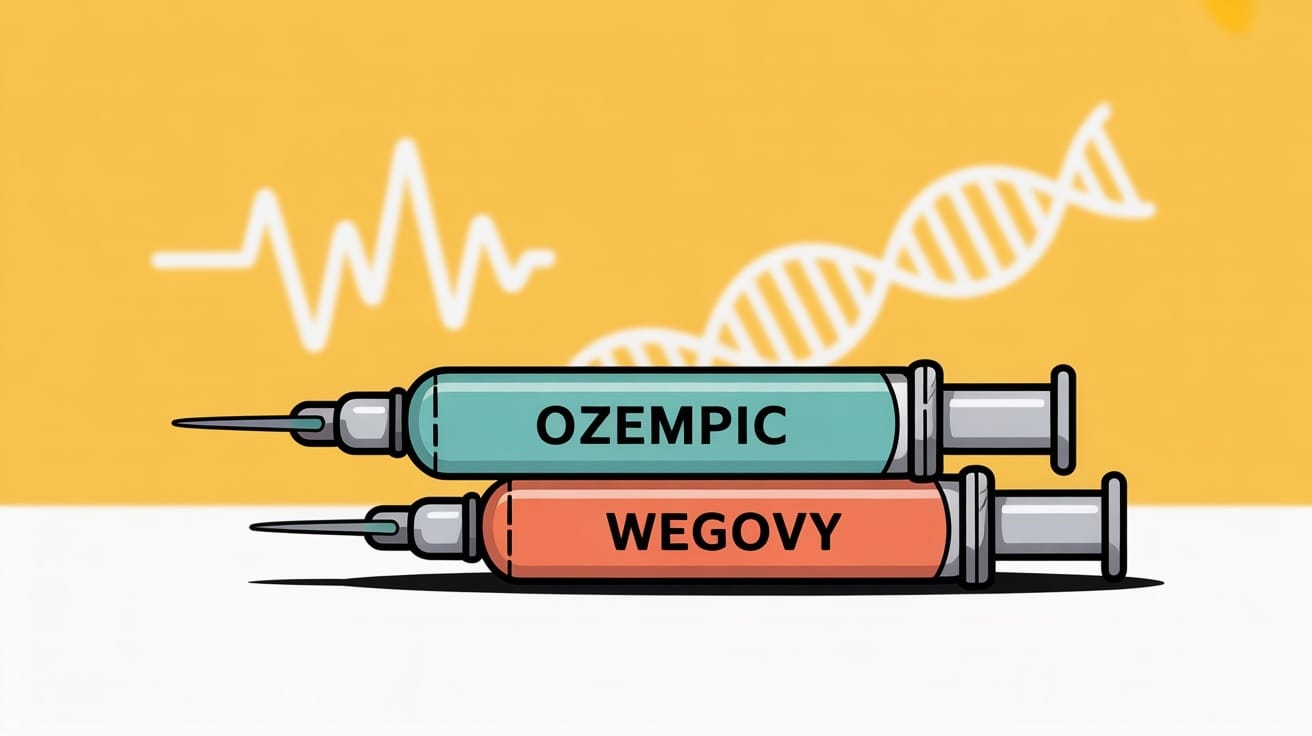Ozempic’s next trick — slow aging
PLUS: Meta wins historic antitrust case
Read Online | Sign Up | Advertise
Good morning, tech enthusiasts. GLP-1 drugs like Ozempic and Wegovy are crashing the longevity party, with early data hinting they might do far more than curb appetite.
Scientists tied to Novo and Lilly say these meds could blunt a whole suite of age-related diseases, with AI drug discovery pioneer Alex Zhavoronkov saying we are on the brink of the world’s “first true longevity drug.”
In today’s tech rundown:
GLP-1s could be the ‘first true longevity drug’
Meta beats FTC’s Instagram breakup bid
Google cracks AirDrop for Pixel phones
Australia adds Twitch to the under-16 ban
Quick hits on other tech news
LATEST DEVELOPMENTS
BIOTECH
💉 GLP-1s could be the first ‘true longevity drug’

Image source: Ideogram / The Rundown
The Rundown: GLP-1 drugs Wegovy and Zepbound are now being touted as potential longevity therapies, with Insilico Medicine’s Alex Zhavoronkov, an AI drug discovery pioneer, saying that early “signals” point to the first true longevity drug.
The details:
Scientists tied to Novo and Lilly suggest routine GLP-1 use may cut rates of multiple age-related diseases, including liver and kidney disease.
GLP-1s modulate insulin signaling and appetite while reducing inflammation and metabolic stress, which could translate to slower organ wear and tear.
A separate Cell Metabolism study reports that low doses of GLP‑1 drugs like Ozempic and Zepbound counteract aging in middle‑aged mice.
With millions already on these drugs, real‑world data can move fast, but proof of longevity demands aging-focused randomized trials.
Why it matters: The next GLP‑1 wave aims to solve downsides like muscle loss and vision risks while shifting to less‑frequent dosing, like monthly injections and new oral options. If research backs up the longevity promise, and if convenience and tolerability improve, it could unlock massive health and economic gains.
META
⚖️ Meta beats FTC’s Instagram breakup bid

Image source: Meta / Wikimedia Commons
The Rundown: In a landmark case, a federal judge ruled Meta is not a monopolist in “personal social networking,” dismissing the FTC’s long-fought bid to force a breakup of Instagram and WhatsApp.
The details:
Judge James E. Boasberg said the FTC failed to prove Meta’s market power or define a credible market that now includes TikTok and YouTube.
The decision ends a seven‑week bench trial that featured testimonies from Mark Zuckerberg and other executives, and leaves Meta’s core apps intact.
Boasberg noted that since the FTC sued in 2020, social media has shifted so rapidly that the apps have changed between each court review.
Regulators said they’re weighing next steps, including a possible appeal, as the court noted TikTok’s rise would keep Meta below monopoly levels.
Why it matters: Meta walks away with its empire intact (no surprise there) while regulators absorb a major blow to their tech consolidation campaign. For its part, Google faces two separate antitrust defeats, but Meta’s win suggests fast-moving social media markets may outpace traditional antitrust frameworks.
🛜 Google cracks AirDrop for Pixel phones

Image source: Google
The Rundown: Google just announced that Pixel 10 phones can now beam files to and from Apple devices over AirDrop, covering iPhone, iPad, and Mac — and the company managed the upgrade without input from Apple.
The details:
Pixel 10 owners can now exchange files with Apple devices via Google's Quick Share, tapping into AirDrop.
The capability is Pixel 10-only for now, but Google told The Verge that it will expand to other Android devices.
To receive from a Pixel 10, Apple users must flip AirDrop to discoverable in settings, then Pixel users can send via Quick Share.
Google insists this isn’t a hack: transfers are direct peer-to-peer with no server relays, no logging, and no extra data exchanged.
Why it matters: Real AirDrop interoperability chips away at Apple’s lock-in, giving Android users a native, no-app solution for file exchanges with people using iPhones/iPads. Combined with RCS already on iOS, it’s another crack in the walled garden — platform friction is finally easing for people who mix ecosystems.
TECH POLICY
🦘 Australia adds Twitch to the under-16 ban

Image source: Ideogram / The Rundown
The Rundown: Australia added Amazon-owned Twitch to its under-16 social media ban, launching December 10, forcing platforms to block new minor signups and purge existing accounts. Pinterest dodged the list.
The details:
Twitch joins a ban that already covers Facebook, Instagram, Threads, TikTok, Snapchat, X, YouTube, Reddit, and Kick, while Pinterest was excluded.
Penalties range up to A$49.5M ($31.9M U.S.) for companies that don’t take “reasonable steps” to comply with the ban.
Meta has begun notifying suspected teen users that accounts will start closing ahead of the cutoff.
Sensing they could be next, platforms like Roblox and Discord have started adding age checks to select features to stay off the ban list.
Why it matters: Australia’s law is the world’s strictest age-gating regime, but U.S. tech and media giants aren’t accepting it quietly. They’re reportedly lobbying President Trump to intervene. Meanwhile, the EU and a growing list of U.S. states are already moving on similar measures.
QUICK HITS
📰 Everything else in tech today
Foxconn says it will spend $2–$3B a year on AI, with chairman Young Liu predicting a looming shakeout in China’s crowded EV market.
Amazon slashed more than 14K corporate roles, but recent filings show engineers took the biggest hit, making up nearly 40% of cuts in some states.
SoftBank is reportedly planning to invest up to $3B to convert a former EV plant in Ohio into a factory that will build modular equipment for OpenAI data centers.
Federal prosecutors indicted four men in an alleged scheme to smuggle millions of dollars’ worth of Nvidia chips to China and Hong Kong.
Kalshi, a CFTC-regulated prediction-market exchange, raised $1B at an $11B valuation less than two months after a $300M round at $5B.
Waymo is offering fully driverless, employee-only rides in its Miami robotaxis, with expansion coming to Dallas, Houston, San Antonio, and Orlando in the next few weeks.
Waymo also announced it will soon begin manual drives in Minneapolis, Tampa, and New Orleans as a first step toward launching its robotaxi service in each city.
Blue Origin unveiled designs for a super‑heavy New Glenn rocket, set to be even taller than the historic Saturn V rocket and similar to SpaceX’s Starship.
Joby Aviation sued Archer Aviation in a California state court, alleging an ex-employee stole trade secrets that Archer used to interfere with a partner deal.
COMMUNITY
🎓 Highlights: News, Guides & Events
Read our last AI newsletter: Nano Banana Pro changes the image generation game (again)
Read our last Tech newsletter: Apple’s next CEO is already waiting
Read our last Robotics newsletter: Sunday’s humanoid can do your dishes
Today’s AI tool guide: Nano Banana Pro for creating stories, lead magnets
See you soon,
Rowan, Jennifer, and Joey—The Rundown’s editorial team
Stay Ahead on AI.
Join 2,000,000+ readers getting bite-size AI news updates straight to their inbox every morning with The Rundown AI newsletter. It's 100% free.





